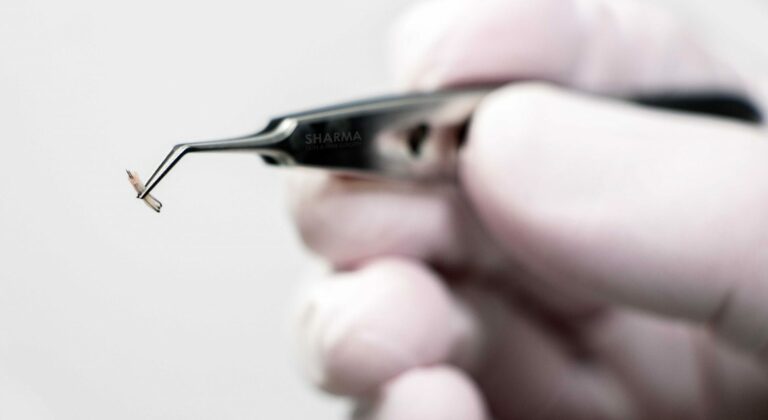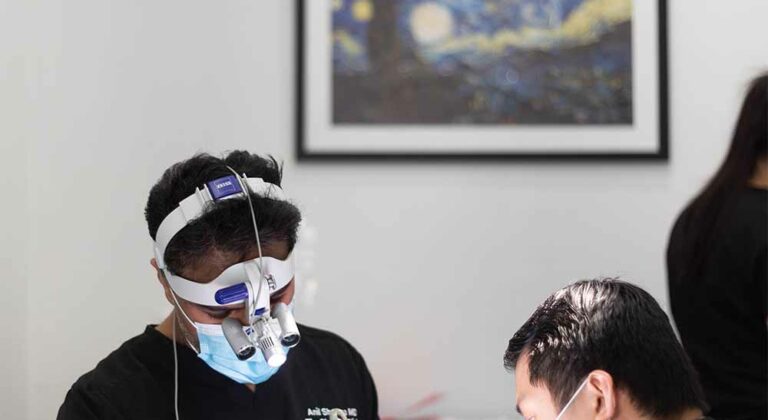Hair transplants have become a sought-after solution for individuals grappling with hair loss, providing a permanent and natural-looking outcome. While the procedure offers a promising solution, one of the most common questions patients have is: “When can I expect to see my hair grow?”
Understanding that hair growth post-transplant is a gradual process is crucial. There’s no one-size-fits-all timeline, as individual factors can influence the rate of growth. Patience is key, but having a general understanding of the typical stages can help to manage expectations.
Read on to see a timeline of the typical hair growth phases following a transplant, along with information on the other factors that can influence hair transplant results.
Hair growth timeline post-transplant
After a hair transplant, the patient’s scalp needs time to adjust to the new follicles. They may notice some redness, swelling, and scabbing around the transplant area. This is perfectly normal as the body works to integrate the new grafts.
The hair growth timeline can be broken down into different phases:
| Months 1-3 | Dormant Phase | The transplanted hair enters a resting period where it may fall out, known as shock loss. It’s normal for there to be no visible growth during this phase. |
| Months 4-6 | Initial Growth Phase | Fine, thin new hairs begin to emerge. These may be light and less noticeable at first, but they are a positive sign that the follicles are active. Hair starts to grow gradually. |
| Months 7-9 | Visible Growth Phase | The hair becomes thicker and more noticeable. Patients will start to see the true results of their transplant as hair texture and quality improve. |
| Months 10-12 | Maturation Phase | The hair continues to thicken and take on a more natural appearance. By this point, most patients see the full results of their hair transplant, with the hair looking dense and natural. |
For a more detailed breakdown of the recovery process, including aftercare tips, visit our Hair Transplant Recovery page.
Why does hair fall out shortly after a transplant?
Factors influencing the hair growth timeline
After a transplant, the success and pace of hair growth can depend on several factors. Having a clear understanding of these components can lead to a smoother recovery process and help patients set realistic expectations.
Individual healing rates
The rate at which hair grows after a transplant will vary depending on how each individual heals. A number of variables come into play, including the patient’s skin type, immune system, and extent of surgery. While some patients may see fresh growth almost immediately, others could need more time.
Age and health of patient
Hair growth can be greatly influenced by the patient’s age and general health. Younger patients frequently experience a quicker rate of regrowth due to their active cellular regeneration. Similarly, a patient’s general health — especially factors like hormonal health, blood circulation, nutrition, and lifestyle habits — can either accelerate or slow down the growth process.
Hair transplant method used
Growth periods might vary depending on the hair transplant method used. FUE requires a less intrusive surgery and could result in a quicker recovery than the more intensive FUT. Consulting with your surgeon about which method is best for you can help manage your expectations around recovery and hair growth.
Post-operative care and adherence to guidelines
Successful hair growth depends on you adhering to your surgeon’s post-operative instructions. This includes keeping the scalp clean, avoiding direct sun exposure, refraining from strenuous physical activities, and following any prescribed treatments. Patients who follow these instructions to the letter typically see faster and better results than those who don’t.
Tips for optimizing hair growth
Here are some recommendations to maximize hair development post-transplant:
- Nutritional advice and supplements: Prioritize a diet rich in essential nutrients like vitamins, minerals, and antioxidants. Focus on foods containing biotin, vitamin D, iron, zinc, and protein, which are crucial for hair health. Consult with your healthcare provider to determine if supplements are necessary to complement your diet and support optimal hair growth.
- Hair care products and routines: Use gentle, sulfate-free shampoos and conditioners to avoid stripping your scalp’s natural oils and irritating the transplanted hair follicles. Reduce the use of heat styling tools like blow dryers and curling irons, as excessive heat can damage both your natural and transplanted hair.
- Consulting with a surgeon for personalized advice: Schedule regular appointments with your surgeon to monitor your progress and address any concerns. Your surgeon can provide personalized advice based on your individual needs, including potential adjustments to your treatment plan or suggestions for additional therapies.
- Avoiding common pitfalls and mistakes: Stay mindful of habits that can hinder hair growth, such as scratching the scalp, excessive sun exposure and sun damage, or using the wrong hair care products. Steer clear of activities that can irritate or stress the scalp, particularly in the initial months following transplantation.
By following these guidelines and working closely with your surgeon, you can optimize your post-transplant hair development and achieve your desired results.
BOOK NOW
Talk to a Hair Transplant Expert
Are you looking for the most effective treatment plan to reverse the effects of hair loss? Dr. Sharma has a long-lasting commitment to offering the best services in the industry. Not only is he experienced with hair loss treatment, but he is passionate about helping each patient receive excellent results.

Share this:
Medically reviewed by
Updated on
Have a question?
Find out how we can help you look feel your absolute best
Contact us 780-476-7970


